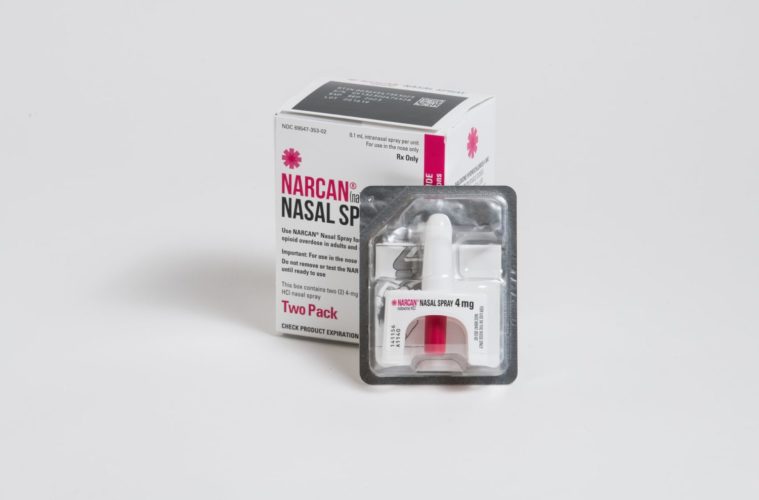Following the latest release of data by the Centers for Disease Control on overdose deaths in America, a coalition of 240 organizations is calling on Congress to pass a set of bills they believe will save lives.
According to the latest numbers from the CDC, 100,000 Americans died of overdoses in the 12-month span between April 2020 and April 2021. As the coalition notes, it’s the highest recorded overdose count ever recorded.
The coalition is being led by the Drug Policy Alliance, National Harm Reduction Coalition, People’s Action, and VOCAL-NY. Along with the other organizations, they’re calling on Congress to swiftly enact legislation to address the historic and ongoing drug overdose epidemic.
They believe in a spread of solutions including public health services, increased access to harm reduction services and treatment. They argue that despite the grim nature of the new CDC numbers, it wasn’t unexpected.
The coalition said 50 years of a criminal justice-centric approach to the nation’s substance abuse issues has only dug the hole deeper. It also has not reduced the supply of illicit drugs.
“With over 100,000 people dying of overdose in the U.S. during the first year of the pandemic, passing these critical pieces of legislation is not only more urgent than ever before – it’s literally a matter of life and death for so many people,” said Maritza Perez, director of the Office of National Affairs at the Drug Policy Alliance. “We are far past the point of waiting for a politically convenient time to take the necessary steps to curb this crisis and save lives. The U.S. government has targeted and criminalized our communities for drugs over the last 50 years as a political ploy which has only fueled the overdose crisis. With countless more lives at stake, it’s time to stop playing politics and continuing down this ill-fated path. It is absolutely imperative that policymakers change course immediately and prioritize evidence-based public health alternatives that are proven to actually save lives.”
Topping the list of the coalition’s demands was an increase in access to overdose prevention, harm reduction, and syringe service programs through the CDC’s Infectious Diseases and the Opioid Epidemic program. The coalition is calling on Congress to appropriate this funding before December 31, 2021.
“100,000 of our friends, family, and colleagues are no longer with us. Sitting with the gravity of this monumental figure and remaining steadfast as we push for critical funding, science-based legislation, and harm reduction education,” said Michelle Wright, National Policy and Advocacy Director at the National Harm Reduction Coalition. “We can no longer afford to wait – we must create opportunities to save lives by any means necessary.”
As for the three bills the coalition wants to see passed. The Mainstreaming Addiction Treatment (MAT) Act (H.R. 1384/ S. 445) would eliminate the redundant and outdated requirement from the Drug Enforcement Administration to prescribe buprenorphine for the treatment of substance use disorder. The Support, Treatment, and Overdose Prevention of Fentanyl Act (H.R. 2366/ S.1457), or the STOP Fentanyl Act, would improve surveillance and detection of fentanyl. It would additionally enhance evidence-based public health approaches to opioid overdose and substance use disorders.
The final bill is the Medicaid Reentry Act (H.R. 955/ S. 285). It would allow Medicaid to cover health services during the last 30 days of incarceration. This would create better access to services and community-based care during reentry. These services would lower both overdose and reentry rates.
“We know how to fix the overdose crisis – through evidence-based, public health solutions,” said People’s Action Institute’s Director Sondra Youdelman. “Our communities just suffered a record-breaking 100,000 preventable overdose deaths in a single year. Instead of continuing to criminalize drug use, Congress needs to take evidenced-based action now, and listen to the people who lost 100,000 loved ones.”
Advertising disclosure: We may receive compensation for some of the links in our stories. Thank you for supporting LA Weekly and our advertisers.

